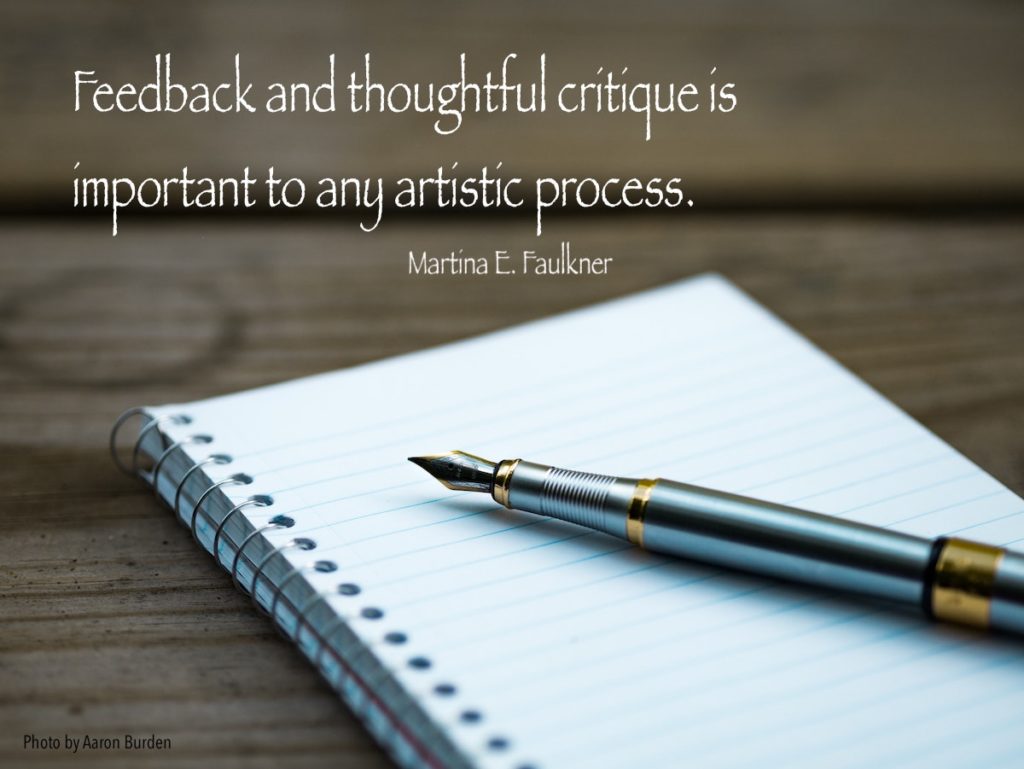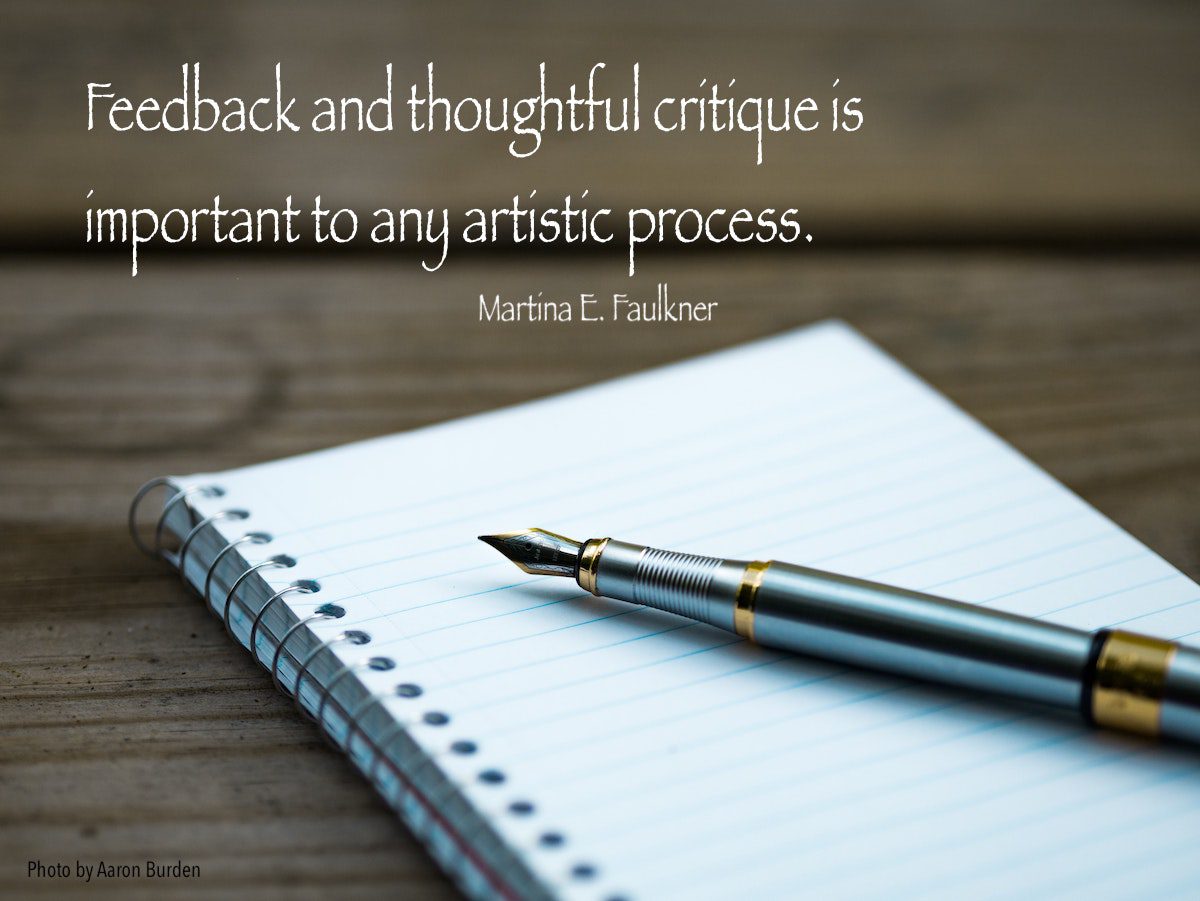by Martina E. Faulkner
Over the years, one of the most fascinating things I’ve learned is the importance of being discerning in asking for feedback. Each time I have completed a manuscript, I have sent it to a select group of people to serve as beta readers. I always handpick the group according to the subject matter in order to get as broad a perspective as possible. This exercise has taught me a lot about the importance of feedback. Even more so, it’s taught me that there are three distinct categories of feedback. Knowing which to use is key to getting the information you want.
The first group is the simplest: readers. Reader feedback is important to find out if your work has legs. Did the person reading your work want to keep reading it? Can they relate to the work in some way? Did they learn something? There are a million questions you could ask your group of readers in order to get the feedback you desire. In this group, the type of feedback is guided by your questions, and there’s only one basic rule: Ask open-ended questions to get the best quality of response.
The other two groups are trickier, and in my experience as both a writer and publisher, I want to help clear up something I have witnessed far too many times to count.
There is a main difference between asking a fellow writer or an editor for feedback, and it lies in their interpretation of the questions you may ask. Actually, it applies to any question you ask, because of the difference in the respondent’s approach.
Many years ago, I participated in different writers’ groups to connect with fellow writers and continue to hone my craft. It wasn’t until I was at a writers’ retreat, however, that I decided writers groups aren’t really for me—unless I could go into them with completely different expectations.

In most writers groups, when a writer asks for critique or feedback, they often receive a fellow writer’s perception of what’s wrong with the work and how they could possibly fix it. While on the surface this may seem helpful, it actually isn’t unless you are specifically “workshopping” a piece. Because at its core, the feedback is actually usually a projection of the other writer’s work, perspective, experience, and voice. Unfortunately, this can result in the writer who is requesting feedback feeling insecure in their work and questioning their voice. It can undermine confidence and create internal havoc for the writer.
Editorial feedback is different. An editor’s job is not to change the writer’s voice, but to enhance it. A good editor will set aside their biases—including their own writing experience and voice—in order to focus on what the writer is trying to say. Then they help the writer say it better… in their own unique way. Feedback from an editor is always meant to refine something to help the writer perfect their craft while honing their voice.
In my own experience, as both a writer and editor, I find that knowing this distinction is key to having success. By delineating and identifying the expectation and approaching each situation with that knowledge, I am better able to help others and to ask others for help.
Feedback and thoughtful critique is important to any artistic process. Knowing what to ask is the first step to getting the information you need to refine your work. However, it’s knowing who to ask (and for what reason) that’s the most important step because it helps you practice discernment, which can assist with managing your expectations while also supporting you in developing and honing your work.


